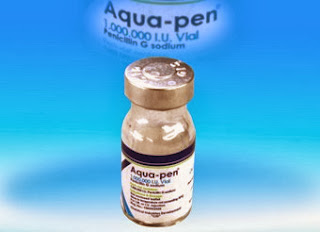Askine 500 mg
Acetylsalicylic acid 490 mg/tab. + Caffeine 10 mg/tab.
Company Name
Alexandria
Therapeutic Group
NON-NARCOTIC ANALGESICS
Pharmaceutical form
Tablet
Package
200 Tablets
Indications
Symptomatic treatment of mild to moderate pain and/or febrile conditions.
Warning & Precautions
Related to acetylsalicylic acid: - Reye's syndrome, a very rare pathology but presents a vital risk, has been observed in children with signs of viral infections (particularly varicella and episodes of influenzal behaviour) and receiving acetylsalicylic acid. Consequently, acetylsalicylic acid must not be administered in these children unless prescribed by the physician. - The administration of acetylsalicylic acid in case of G6PD deficiency must be under medical supervision. - Metrorrhagia or menorrhagia (risk of augmentation of the duration of menses) - Acetylsalicylic acid modifies the uricemia. Related to caffeine: It should not be given to children below 15 years old due to the presence of caffeine, also it may cause insomnia thus should not be taken at the end of the day.
Product Type
Human
Dosage
Mild to moderate pain and/or febrile conditions: For adults and children weighing more than 50 Kg(15 years or older): The maximum recommended daily dose is 3 gm of aspirin. The usual dosage is 1 tablet to be repeated,if needed, at least after 4 hours. In case of more intense pain or fever, 2 tablets to be repeated, if needed, at least after 4 hours without exceeding 6 tablets per day. Dosage in elderly: The maximum recommended daily dose is 2 gm of aspirin. The usual dosage is 1 tablet to be repeated, if needed, at least after 4 hours. In case of more intense pain or fever, 2 tablets to be repeated, if needed, at least after 4 hours without exceeding 4 tablets per day.
Adverse Reactions
Related to acetylsalicylic acid: Gastrointestinal effects: abdominal pain Hematological effects: hemorrhagic syndromes with increasing bleeding time. This action persists from 4-8 days after stopping administration of acetylsalicylic acid. It may cause a risk of hemorrhage in case of surgical intervention Hypersensitivity reactions: urticaria, cutaneous reactions Related to caffeine: Possibility of excitation, insomnia and palpitations
Contra Indications
- Hypersenstivity to acetylsalicylic acid or any of the ingredients of the product - History of asthma induced by the administration of salicylates or substances of similar activity, especially NSAIDs - Developing gastroduodenal ulcer - Hemorrhagic diseases - Risk of hemorrhage - Severe hepatic insufficiency - Severe renal insufficiency - Severe uncontrolled cardiac insufficiency
Drug Interactions
In case of concomitant administration of acetylsalicylic acid with: - Oral anticoagulants: increased risk of hemorrhage especially in patients with a history of gastroduodenal ulcer - Methotrexate: Acetylsalicylic acid increases the toxicity, especially hematologic, of methotrexate due to decreasing the renal clearance of methotrexate - NSAIDs in patients with a history of gastroduodenal ulcer: increased risk of ulcer and digestive hemorrhage - Uricosurics: Acetylsalicylic acid decreases uricosuric effect by competition with the elimination of uric acid in the renal tubules. - Heparins of low molecular weight and non fractioned heparins at curative doses and/or in patients over 65 years old: increased risk of hemorrhage - Diuretics, inhibitors of conversion enzyme, and angiotensin II antagonists: The patient must be well hydrated and the renal function must be monitored at the start of treatment. - Local gastrointestinal drugs and antacids: increased renal excretion of aspirin thus the doses must be spaced by 2 hours. In case of concomitant administration of caffeine with: Enoxacin, ciprofloxacin, norfloxacin, mexiletine, stiripentol: decreased hepatic metabolism of caffeine and increasing its plasma concentration.







